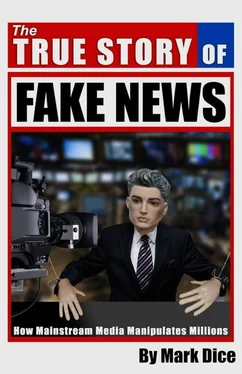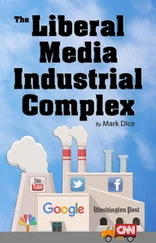Thankfully, however, many are waking up to this mass manipulation and have seen the new systems of media production and distribution as they were constructed, and remember what society was like before this information overload engulfed our world.
While some of the information I covered in this book may seem like common sense to those who have lived long enough to observe patterns over years or decades, it is important to clearly document what has happened so we can teach the younger generations about the details and the sophistication of information manipulation mechanisms and help them become media literate.
Even if you’ve suspected this kind of deception occurs, I’m confident that this book has provided you with countless pieces of evidence to prove beyond a shadow of a doubt that we are in an information war, and as technology advances, the tactics to abuse it will likely also continue to advance. Soon it may be difficult for even experts to prove that something is or is not true. 876James Madison once said, “A people who mean to be their own governors must arm themselves with the power which knowledge gives. A popular government without popular information, or the means of acquiring it, is but a prologue to a farce or a tragedy, or perhaps both.” 877
Unfortunately people have always, and will most likely continue, to believe that some hoaxes are real, and that some real events are hoaxes. Millions of Americans believe President Trump is a white supremacist and that police departments across the country are dominated by racist white men who enjoy killing black people. A large number of people still believe the moon landing was faked, and Flat Earthers even made a resurgence in early 2016, despite having limitless scientific research at their fingertips, they actually believe the Earth is flat and that NASA is lying to us; so it’s clear we have a serious problem with knowledge and information in today’s society. Others are more concerned with celebrity gossip than actual issues which directly impact their lives.
One thing we can do is prevent this problem from getting worse by being aware of the dangers of clickbait journalism, and knowing how most ‘news’ websites make money today. People should know why old subscription models are better◦— when people paid for monthly or yearly subscriptions to newspapers and magazines they liked and trusted instead of these companies relying on people sharing their articles on social media which encourages websites to generate page views by any means necessary.
The more shocking and sensational the headlines, the more likely people will click the link, bringing traffic to the site and revenue from the advertisers. Social media platforms are now the lifeblood of most ‘news’ sites which rely on people sharing their articles on Facebook or Twitter in hopes of duping people into clicking on them.
Owners of major media companies see the power their empires hold and often choose to use their outlets to influence people instead of informing them. From activist journalists to senior editors to CEOs, many in the big media companies can’t help but impose their personal political ideology on the world by using the infrastructure they have at their disposal. By building mountains out of molehills, through lying by omission, agenda-setting, framing stories and issues in a certain light, and by manipulating what is spread through social media by either limiting its reach or artificially amplifying it, the major media and tech companies try, and they do, influence the way people think and thus how they act.
As people have come to rely more and more on the media to think for them and don’t use their own brains to remember things because they can “just Google it,” many have continued to dull their own ability to think, reason, and remember. As 19th century Swiss writer Charles-Ferdinand Ramuz noted, “It would not be very difficult to show that the further man advances in the conquest of what we must call his secondary powers, which are of a mechanical nature, the more he regresses in the possession of his primary powers, which are of an intuitive nature, and thus he is constantly being weakened.” 878
The shift from print journalism to websites and Facebook pages doesn’t just pose a danger to the distribution and verification of news, but it also puts our historical records at risk as well. Headlines and articles can now be changed without notice and information can vanish down a memory hole with little to no trace of its existence. With digital forgeries getting more sophisticated, how will we be able to verify that a document is actually authentic, especially if there are no physical documents anymore? Most people don’t backup their own files locally anymore on external hard drives, and instead rely on cloud services. Many people don’t even own software anymore, and instead pay monthly subscription fees for applications like Photoshop, Microsoft Office, and others.
Paperback books and magazines have become less and less popular since the creation of e-books and tablets, opening the door to dangers of remote deletion, alteration, or even device failure if an iPad or Kindle is dropped and breaks. Someone even gave a Ted Talk claiming that paper dictionaries aren’t needed anymore since they’re too old fashioned, which is a dangerous road to go down. 879Society is on strange course, making us more vulnerable to fake news, not less, and many question whether there is even a solution at all.
Microsoft’s social media researcher Danah Boyd said, “No amount of ‘fixing’ Facebook or Google will address the underlying factors shaping the culture and information wars in which America is currently enmeshed.” 880She continued, “The short version of it all is that we have a cultural problem, one that is shaped by disconnects in values, relationships, and social fabric. Our media, our tools, and our politics are being leveraged to help breed polarization by countless actors who can leverage these systems for personal, economic, and ideological gain.” 881
The stress of daily life, mixed with the constant bombardment of bad news about the latest death tolls from local crime and national tragedies, makes it appealing for many to completely check out of current events and the political process and get lost in a world of entertainment. Wasting countless hours clicking through social media threads or arguing about pop culture with complete strangers online is way too easy and should be avoided in exchange for meaningful discussions with friends and family and personal study.
We should stay away from the dangers of only getting news from following certain Twitter accounts or Facebook pages because we like what they post. The risk of being stuck in an echo chamber where only news and commentaries that reflect your own opinions, attitudes and interests, could keep you completely in the dark about important events you should be aware of, and can often present only one side of an issue.
When I was a kid, my friends and I had to ride our bikes to the local video store to rent a VHS tape for $3 or $4 dollars which had to be returned by 5pm the next day. Today we can all watch Netflix, Hulu, Amazon Prime, or any number of other streaming services for just a few dollars a month and have access to endless movies and TV shows with the push of a button. So I thank you for taking the time and effort to tune out the millions of distractions clamoring for your attention and ignoring the endless alerts, notifications, likes, comments, and posts on social media for a while to focus on the information I’ve assembled and analyzed in this book.
I hope you’ll write a brief review and rate it on Amazon or whatever e-book store you downloaded it from if that’s how you’re reading it, and I encourage you to check out some of my other books as well, as this is not the only one I have written. I will conclude with a final quote from one of the best films about mass media which brilliantly conveyed the dangerous power wielded by the corporations which control it. In Network (1976), news anchor Howard Beale ‘sees the light’ about the sinister nature of the very business he’s been a part of for decades and decides to blow the lid off it, live on the air. His epic rant, even though over forty years old now, is timeless, and perhaps even more powerful today than when he first made it in 1976 when the film was released.
Читать дальше












